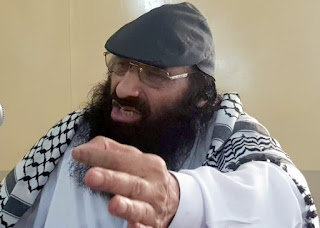Attack on Salahuddin shows rift between Pak and Hizbul Mujahideen
Indian intelligence agencies are abuzz with news about the attack on Hizbul Mujahideen chief Syed Salahuddin in Islamabad this Monday. They believe that the attack happened at the behest of Pakistani spy agency ISI due to differences over the situation in Kashmir after the abrogation of Article 370.
Salahuddin, who is also the head of the United Jihad Council – an alliance of terrorist groups such as Lashkar-e-Taiba and Jaish-e-Mohammed, all nurtured and trained by Pakistan, is reported to have sustained serious injuries in the attack. He has been hospitalised.
Supported by Pakistan, Salahuddin was considered as one of the main motivators for urging the youth in Kashmir to take up terrorism. The idea was to show that terrorism in Kashmir was an ‘indigenous struggle’ against Indian rule, and not an activity promoted by Pakistan by pushing terrorists into India.
Reportedly, differences between Salahuddin and the ISI began after his group’s failure to launch major terror activity in J&K after the abrogation of Article 370. The ISI began reducing support for his terror group, Hizbul Mujahideen, which reportedly prompted him to criticise the Pakistan government, increasing the bitterness. Pakistan sidelined Hizbul by not providing weapons and other strategic support.
After the gunning down of Hizbul commander Riyaz Naikoo by Indian security forces earlier this month, Salahuddin was publicly heard criticising the ISI for lack of support. This video was shared far and wide and his comments proved that the Indian security forces had an upper hand in Kashmir against well-trained Pakistan-backed terrorists.
Sources say that the attack on the terror chief could be a signal to other terror groups to not step out of the line and continue the bidding of the ISI.
Intelligence agencies in the valley believe that the attack on Salahuddin has dampened the enthusiasm for terror activity in the Kashmir valley. It has also impacted those who nurtured the idea that the armed struggle was an indigenous movement in J&K.
Salahuddin had been declared a global terrorist by the US State Department in 2017. However, India’s efforts to get the United Nations Security Council (UNSC) to classify him as a terrorist have been repeatedly blocked by China. As he is not a UNSC designated terrorist, Pakistan says he cannot be put under arrest.

Comments
Post a Comment